Staff pages.
This is the multi-page printable view of this section. Click here to print.
Staff
- 1: Geoffrey C. Fox
- 2: Gregor von Laszewski
- 3: Jacques Fleischer
- 4: Clara Grimmelbein
- 5: Junyang (Eric) He
- 6: Meryem Altin Karagoz
- 7: Nate Kimball
- 8: Varun Pavuloori
- 9: Arup Sarker
- 10: Mills W. Staylor
- 11: Christopher Zelaya
- 12: Tianle Zhong
1 - Geoffrey C. Fox
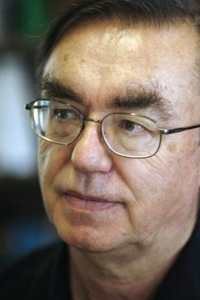
Geoffrey C. Fox
Geoffrey C. Fox.
The Web Page is located at
2 - Gregor von Laszewski
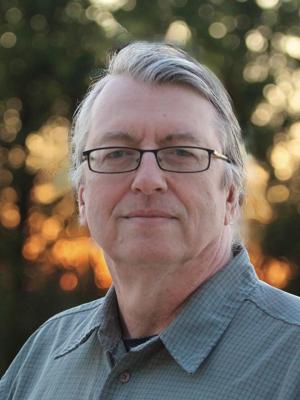
Gregor von Laszewski
Gregor von Laszewski’s Web page is located at
3 - Jacques Fleischer
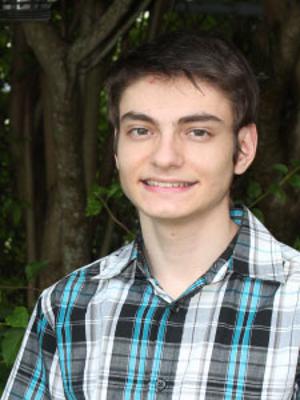
Jacques Fleischer
Biography
Jacques is an undergraduate computer science major in the Computing for Global Challenges program of the Biocomplexity Institute at the University of Virginia. His interests include leveraging artificial intelligence to analyze timeseries; he also uses high performance computing to conduct geospatial AI predictions.
References
- von Laszewski, G., Fleischer, J. P., & Fox, G. C. (2022). Hybrid Reusable Computational Analytics Workflow Management with Cloudmesh. arXiv, 2210.16941.
- Fleischer, J. P., von Laszewski, G., Theran, C., & Parra Bautista, Y. J. (2022). Time Series Analysis of Cryptocurrency Prices Using Long Short-Term Memory. Algorithms, 15(7), 230. MDPI AG.
- Fleischer, J. P., von Laszewski, G., Theran, C., & Parra Bautista, Y. J. (2022). Time Series Analysis of Blockchain-Based Cryptocurrency Price Changes. arXiv, 2202.13874.
Project
The tevelop earthquake benchmark analyzes historical data and forecasts earthquakes with Normalized Nash-Sutcliffe Efficiency (NNSE) as a measure of accuracy. The benchmark is ran several times in parallel on several graphics cards and varying epochs to find the best hyperparameter combination.
The cloudmask benchmark reads satellite imagery and classifies portions of images as cloudy or clear sky. Validation loss and inference accuracy are used to identify which epoch number is ideal for optimal classification.
Resources
Compute Resources: 500 GPU-accelerated Slurm hours
Data Resources: at least 5 TB of space for data storage
4 - Clara Grimmelbein
Biography
Clara Grimmelbein is a student at the University of Virginia, class of 2026, pursuing a B.A. in Computer Science and a B.S. in Commerce with a minor in Italian.
References
- N/A
Project
Candle Uno utilizes deep learning architectures to predict tumor response to single and paired drugs. Candle combats the problems of cellular, molecular, and population problems within cancer. The project is trained with a subset of dose-response data from six data sources. Benchmark Pilot1 (P1) focuses on the molecular features of tumor cells from a singular data source, CCLE, to accelerate the use of effective drugs to cure cancerous cells.
Resources
Compute Resources:
https://github.com/ECP-CANDLE/Benchmarks/blob/develop/Pilot1/Uno/uno_baseline_keras2.py
(to initiate training)
Data Resources:
http://ftp.mcs.anl.gov/pub/candle/public/benchmarks/Pilot1/uno/top_21_auc_1fold.uno.h5
5 - Junyang (Eric) He
Junyang (Eric) He is a student in the class of 2025 at the University of Virginia, pursuing a B.S. in Computer Science. He worked as a research intern at UVA Biocomplexity Institute in the summer of 2022 and he is currently conducting research on Deep Learning in Hydrology predictions. His research interests include machine learning, deep learning, and artificial intelligence.
6 - Meryem Altin Karagoz
Biography
Meryem Altin Karagoz joined Computer Engineering department of Sivas Cumhuriyet University Turkey, in 2016, as a Research Assistant. She received a master’s degree in Computer Engineering at Erciyes University in 2019 and is currently Ph.D. student in Computer Engineering at Erciyes University. She is awarded a grant by The Scientific and Technological Research Council of Turkey (TUBITAK) to perform research at University of Virginia. Her research interests are artificial intelligence, deep learning, and medical image analysis.
References
-
KARAGOZ, M. A., AKAY, B., BASTURK, A., KARABOGA, D., & NALBANTOGLU, O. U., (2023). An unsupervised transfer learning model based on convolutional auto encoder for non-alcoholic steatohepatitis activity scoring and fibrosis staging of liver histopathological images. Neural Computing and Applications , vol.35, no.14, 10605-10619.
-
KARAGOZ, M. A., KARABOGA, D., AKAY, B., BASTURK, A., & Nalbantoglu, O. U., (2022). Deep Learning Based Steatosis Quantification of Liver Histopathology Images Using Unsupervised Feature Extraction. 2nd International Conference on Computing and Machine Intelligence, ICMI 2022, İstanbul, Turkey
-
KARAGOZ, M. A., & NALBANTOGLU, O. U., (2021). Taxonomic classification of metagenomic sequences from Relative Abundance Index profiles using deep learning. Biomedical Signal Processing and Control , vol.67.
-
Karagoz, M. A., & Nalbantoglu, O. U., (2019). RAPID PATHOGEN DETECTION OF USING CONVOLUTIONAL NEURAL NETWORKS ON METAGENOMICS DATA. HIBIT 19- THE 12TH INTERNATIONAL SYMPOSIUM ON HEALTH INFORMATICS AND BIOINFORMATICS (pp.130-131). İzmir, Turkey
-
Karagoz, M. A., & Nalbantoglu, O. U., (2018). TAXONOMIC ANALYSIS OF MICROBIOTA DATA BASED ON RELATIVE ABUNDANCE INDEX ALGORITHM. Uluslararası XXXVIII. TMC Kongresi (pp.381-382). Antalya, Turkey
Project
Title: Developing Self-Supervised Learning Models for Reducing the Dependency on Expert Supervision in Medical Image Analysis
Deep Learning methods are capable of learning highly complex mathematical functions using a large number of neural-net layers. Therefore, deep learning models require a large amount of data to learn large numbers of parameters. However, the two main problems encountered in current medical imaging studies with Deep Learning are: (i) lack of annotated datasets and (ii)imbalanced datasets between labels or classes. While limited labeled datasets cause overfitting, an imbalanced dataset between positive and negative samples causes an underfitting problem for deep networks. Thus, deep learning models are challenging to provide high performance in computer vision problems with insufficient data; medical imaging is one of these areas. The problem of generating largescale and public datasets for medical image analysis is difficult to solve in the short term due to practical difficulties such as cost, time, patient privacy, and lack of standard data publication procedures. On the other hand, the problem of an imbalanced dataset can be challenging for generating a large-scale annotated dataset. Therefore, it is an important field for medical image analysis studies that researchers develop Deep Learning strategies to overcome these data constraints by reducing the dependence on expert supervision. In recent years, self-supervised learning (SSL) has gained remarkable attention against lack of datasets owing to pretext task and downstream task mechanisms with prior studies. The pretext task is pre-designed as the former task for learning discriminative visual features on unlabeled data to be used in downstream tasks such as classification, detection, and segmentation. In addition to providing robust and performance-enhancing solutions in the lack of labeled data, self-supervised learning methods allow extraction of distinct signals by using labeled and unlabeled data all together as in an unsupervised manner during the pretext task step. Thus, SSL provides a solution to the problem of a large amount of unlabeled data, which is the most critical problem in medical image tasks. However, there is a noticeable lack of self-supervised learning models for medical image analysis tasks and needs to be improved with further studies. In conclusion, we focus on SSL models to deal with data limitations and enable automated diagnosis and detection systems at the expert level for clinical usage by reducing expert demand for medical image tasks.
Resources needs
Compute:
Data: at least 10 TB of space for data storage.
7 - Nate Kimball
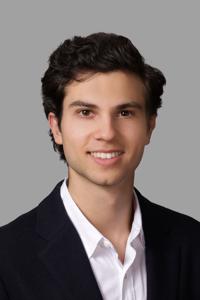
Nate Kimball
Nathaniel Kimball is a student at the University of Virginia, class of 2024, pursuing a B.S. in Computer Science with a minor in Applied Mathematics. He is an incoming Global Technology Summer Analyst intern at Bank of America (2023). His interests include artificial intelligence, machine learning, MLOps, stochastic processes, and algorithmic economics.
8 - Varun Pavuloori
Varun Pavuloori is an undergraduate student at the University of Virginia, class of 2025, pursuing a B.S. in Computer Science and a minor in Data Science.
9 - Arup Sarker
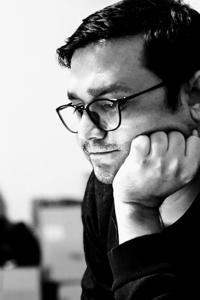
Arup Sarker
Arup Sarker is a student at the University of Virginia, class of 2021, pursuing a Ph.D. in Computer Science. He is working as a research assistant at the UVA biocomplexity Institute where he currently focuses on developing an HPC framework for a distributed environment. In the past, until the middle of last year, he worked on 3D data processing based on point cloud or voxel-based motion planning and control in an autonomous vehicle, as well as security research in IoT Trust computing. Prior to this, he was a Staff Engineer at Samsung R&D Institute Bangladesh Ltd. starting from September 2011. During his tenure, he had the opportunity to work with various cutting-edge technologies that were leading the market. He made significant contributions to the development of the Android platform, particularly on Audio/Video, Frameworks, and Network protocols for transmitting data in mission-critical services, as well as Gear360 and many others. From the beginning of his time at Samsung, all of his work revolved around designing and developing embedded and distributed solutions that required data transmission over networks. Even as a feature phone developer in 2011, he was responsible for the system modules used to transmit calls and messages.
His interests include High-Performance Computing in Distributed Environments, Multi-Level Compiler optimization for parallel programming, Distributed heterogeneous AI architecture, and 3D vision for the autonomous system.
Checkout the detailed profile: https://www.arupsarker.com/
10 - Mills W. Staylor
Mills W. Staylor received his BS in Business Management from Virginia Polytechnic Institute and State University (Virginia Tech). He continued his studies at George Mason University where he earned dual MS degrees in Civil, Environmental and Infrastructural Engineering and Software Engineering. After graduate school, Mills worked as a professional software engineer in both public and private sectors. Most recently, he played a pivotal role in the development of an Alexa bridge which provided access to streaming content on Alexa devices. He is currently a PhD student in Computer Science at the University of Virginia and has interests in high performance computing, visualization, and cloud computing.
11 - Christopher Zelaya
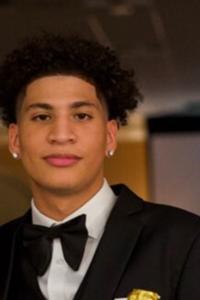
Christopher Zelaya
Biography
Christopher Zelaya is a student at the University of Virginia, class of 2024, pursuing a B.S. in Computer Science with a minor in Data Science. He is an incoming Software Engineer Intern at Honeywell (2023) and plans to pursue a Masters in Computer Science or Data Science at UVA. His interests include Deep Learning, Algorithms, and AI.
References
- N/A
Project
State of the art scanning transmission electron microscopes (STEM) produce focused electron beams with atomic dimensions and allow to capture diffraction patterns arising from the interaction of incident electrons with nanoscale material volumes. Backing out the local atomic structure of said materials requires compute- and time-intensive analyses of these diffraction patterns (known as convergent beam electron diffraction, CBED). Traditional analyses of CBED requires iterative numerical solutions of partial differential equations and comparison with experimental data to refine the starting material configuration. This process is repeated anew for every newly acquired experimental CBED pattern and/or probed material.
Resources
Compute Resources: https://github.com/mlcommons/science/tree/main/benchmarks/stemdl
Data Resources: https://doi.ccs.ornl.gov/ui/doi/70
12 - Tianle Zhong
Tianle Zhong received his B.Eng. in Computer Science and B.S. in Applied Mathematics at the University of Electronic Science and Technology of China in 2022. He is currently working for his Ph.D. in Computer Science at University of Virginia. His research interests include machine learning system and deep learning compiler, specifically about the optimization and efficiency of large model training.